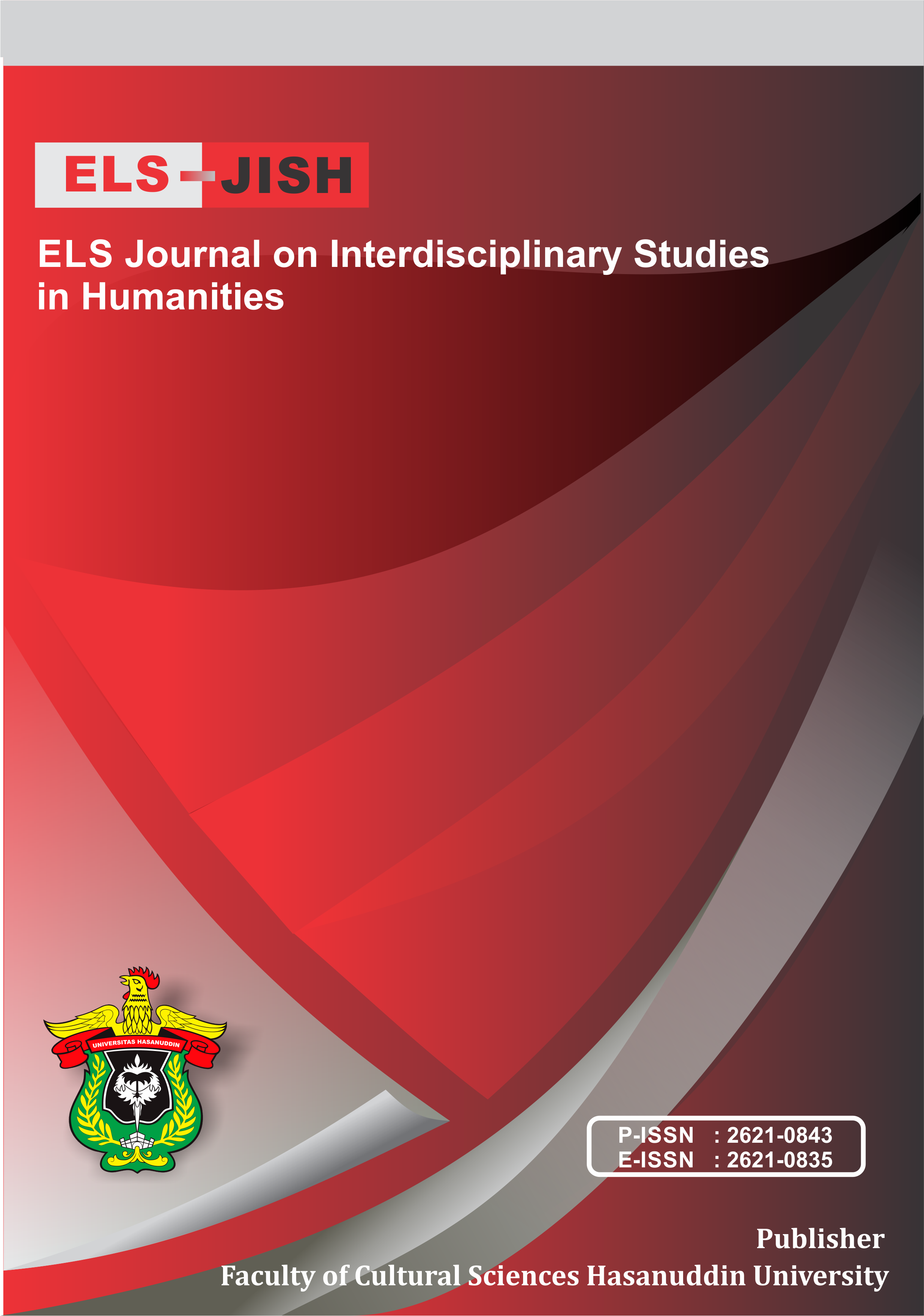Parenting Styles and Their Impact on Children’s Behavior in Dahl’s Charlie and The Chocolate Factory
DOI:
https://doi.org/10.34050/elsjish.v4i2.13634Keywords:
Parenting Styles, Psychology of literature, Child Behavior, Roadh DahlAbstract
Parenting is a necessary component of human development. It assists children in developing the competencies necessary to function in and face society as adults. A good parenting approach would assist the child in functioning optimally in the society; on the other hand, a poor parenting practice would increase the child's susceptibility to negative behavior and ultimately ruin the child's future. This paper aims to demonstrate Dahl's portrayal of parenting styles and their effect on children’s behavior in Charlie and the Chocolate Factory. The study was performed using the psychology of literature approach, with Baumrind's parenting framework serving as the underlying theory. The finding demonstrates that parental parenting styles serve as the "mold" for children's actions as portrayed by the characters in the story. (1)Permissive parenting, as demonstrated by Veruca Salt and Augustus Gloob, (2)Authoritarian parenting, as demonstrated by Violet Beauregarde, (3)Uninvolved/ Neglectful parenting, as demonstrated by Mike Teavee, and (4)Authoritative parenting, as demonstrated by Charlie Bucket, the main protagonist.Downloads
References
Arniati, F., Darwis, M., Rahman, N., & Rahman, F. (2019). Mother Behavior to Their Daughters As Seen in ’’Pride and Prejudice" and "Little Women". ELS Journal on Interdisciplinary Studies in Humanities, 2(4), 620-625. https://doi.org/10.34050/els-jish.v2i4.8004
Baldwin, A. L. (1948). Socialization and the parent-child relationship. Child Development, 19, 127–136.
Baumrind, Diana. (1966). Effects of Authoritative Parental Control on Child Behavior. Child Development, 37(4). https://doi.org/10.2307/1126611
Baumrind, Diana. (1967). Child care practices anteceding three patterns of preschool behavior. Genetic Psychology Monograph, 75(1), 43–88.
Baumrind, Diana. (1971). Current patterns of parental authority. Developmental Psychology, 4(1 PART 2). https://doi.org/10.1037/h0030372
Baumrind, Diana. (1991). The Influence of Parenting Style on Adolescent Competence and Substance Use. The Journal of Early Adolescence, 11(1), 56–95. https://journals.sagepub.com/doi/10.1177/0272431691111004
Dahl, R. (1964). Charlie and the Chocolate Factory (2010th ed.). Puffin Modern Classics.
Hunt, P., Oberstein, K. L.-, Watkins, T., & Sarland, C. (2002). Understanding Children’s Literature (P. Hunt (ed.)).
Maccoby, E., & Martin, J. (1983). Socialization in the context of the family: Parent–child interaction. In P. Mussen & E. Hetherington (Eds.), Handbook of Child Psychology Handbook of Child Psychology, volume IV: Socialization, personality, and social development (4th edition, pp. 1–101). Wiley.
Mansyur, F. A., & Suherman, L. A. (2020). The Function of Proverbs as Educational Media: Anthropological Linguistics on Wolio Proverbs. ELS Journal on Interdisciplinary Studies in Humanities, 3(2), 271-286. https://doi.org/10.34050/els-jish.v3i2.10505
Orlansky, H. (1949). Infant care and personality. Psychological Bulletin, 46(1). https://doi.org/10.1037/h0058106
Rahman, F. (2010). Sastra Anak Dalam Persimpangan. Jurnal Lensa Budaya, 5(1).
Rahman, F. (2017). The revival of local fairy tales for children education. Theory and Practice in Language Studies, 7(5), 336-344.
Rahman, F., & Amir, P. (2019). Trends in Reading Literary Fiction in Print and Cyber Media by Undergraduate Students of Hasanuddin University. International Journal of Education and Practice, 7(2), 66-77.
Saldana, J. (2009). The Coding Manual for Qualitative Researchers - SAGE Publications Ltd. https://doi.org/10.1017/CBO9781107415324.004
Surya, W., Rahman, F., & Makka, M. (2017). Folktale from England to Toraja. Imperial Journal of Interdisciplinary Research (IJIR), 3, 2454-1362.
Downloads
Published
Versions
- 2021-06-28 (3)
- 2021-06-25 (2)
- 2021-06-24 (1)
How to Cite
Issue
Section
License
Copyright (c) 2021 Desy Eva laila Rokhmah Rokhmah

This work is licensed under a Creative Commons Attribution-NonCommercial-ShareAlike 4.0 International License.

















